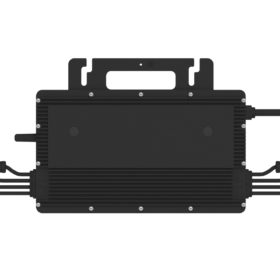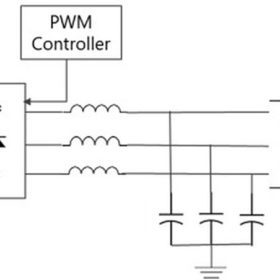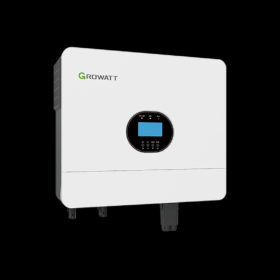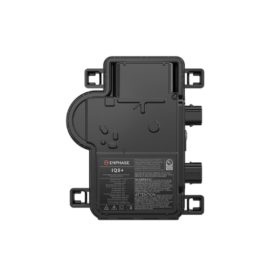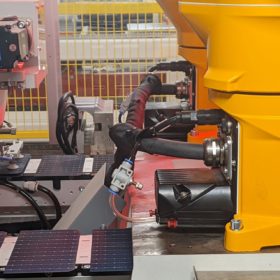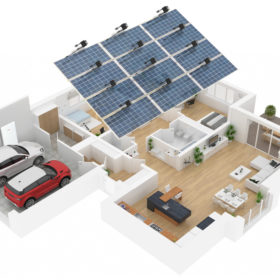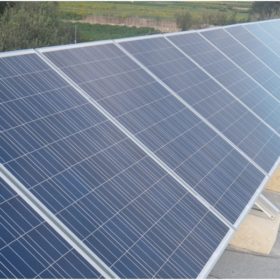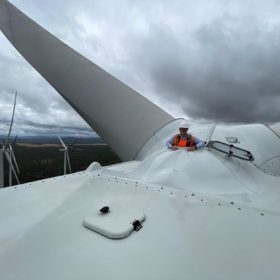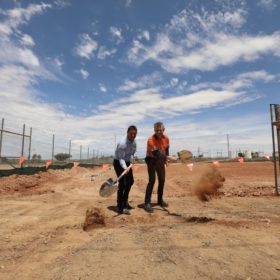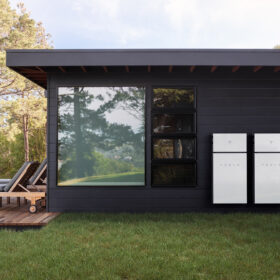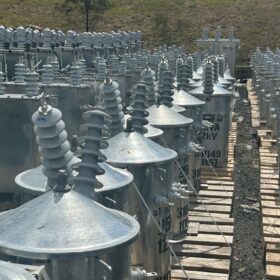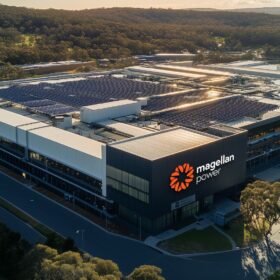New residential battery inverter solution from China
Esysunhome (ESYSH), a new energy storage company in China, has developed a 5.12 kWh lithium iron phosphate (LFP) battery system with a 7.9 kW inverter. It says six modules can be combined for up to 30.72 kWh of energy storage capacity.
Hoymiles reveals microinverters for high-power PV modules
Chinese manufacturer Hoymiles has developed a new line of microinverters with up to 96.7% efficiency and outputs of up to 2,000 VA. It said they can be connected with up to four high-power solar modules.
Lowering grid costs with voltage support from PV inverters at night
US researchers have proposed the use of solar inverters in utility-scale solar assets to replace expensive voltage compensators, in order to provide voltage support at night. They said reactive power from PV inverters could be significantly cheaper and suggested the introduction of incentives to convince PV plant owners.
Growatt unveils new inverters for residential off-grid PV systems
Growatt’s new 6 kW inverters have an efficiency rating of 93% and offer 12,000 VA of surge power, up to 500 V of input voltage, and 8 kW of PV input capacity.
Enphase to add up to 7.2 GW of US solar microinverter production capacity
Enphase CEO Badri Kothandaraman has said that the company will build four to six new manufacturing lines in the United States.
Feds focus on renewables with $15 billion manufacturing fund
The Australian government will commence talks with investors and industry this week on the formation of a $15 billion (USD 10.2 billion) national reconstruction fund that aims to boost investment in onshore manufacturing, including the production of solar panels, batteries and hydrogen electrolysers, and components for wind turbines.
Energy optimiser SolarEdge expands into full home solution
Customers’ desire for fast, simple access to rooftop solar has driven the industry towards one-stop solutions, with all system components under the same brand and warranty arrangements, and integrated under a proprietary intelligent digital control system. pv magazine Australia spoke with Gavin Merchant, country manager for Australia and New Zealand, about the new SolarEdge Home equation and the economic drivers of full rooftop package adoption.
New algorithm to identify underperforming strings in PV systems
German researchers have created an algorithm to predict and identify string yield losses or underperforming strings without additional weather data. It could be used to inspect modules, strings, arrays, inverters, and transformers.
Companies line up as Queensland plans renewables-led manufacturing boom
The Queensland government is forecasting a renewables-led manufacturing and jobs boom in the state with hundreds of Australian and international companies registering their interest in supplying the thousands of solar panels, batteries, wind turbines, and kilometres of transmission lines the state says it will need to deliver its $62 billion (USD 40 billion) energy transformation plan.
AGL breaks ground on ‘pioneering’ Broken Hill battery
Construction has begun on a 50 MW/50 MWh battery near the outback city of Broken Hill which will be equipped with advanced inverter technology designed to improve system strength in regional New South Wales and support increased levels of renewable energy generation in the area.

